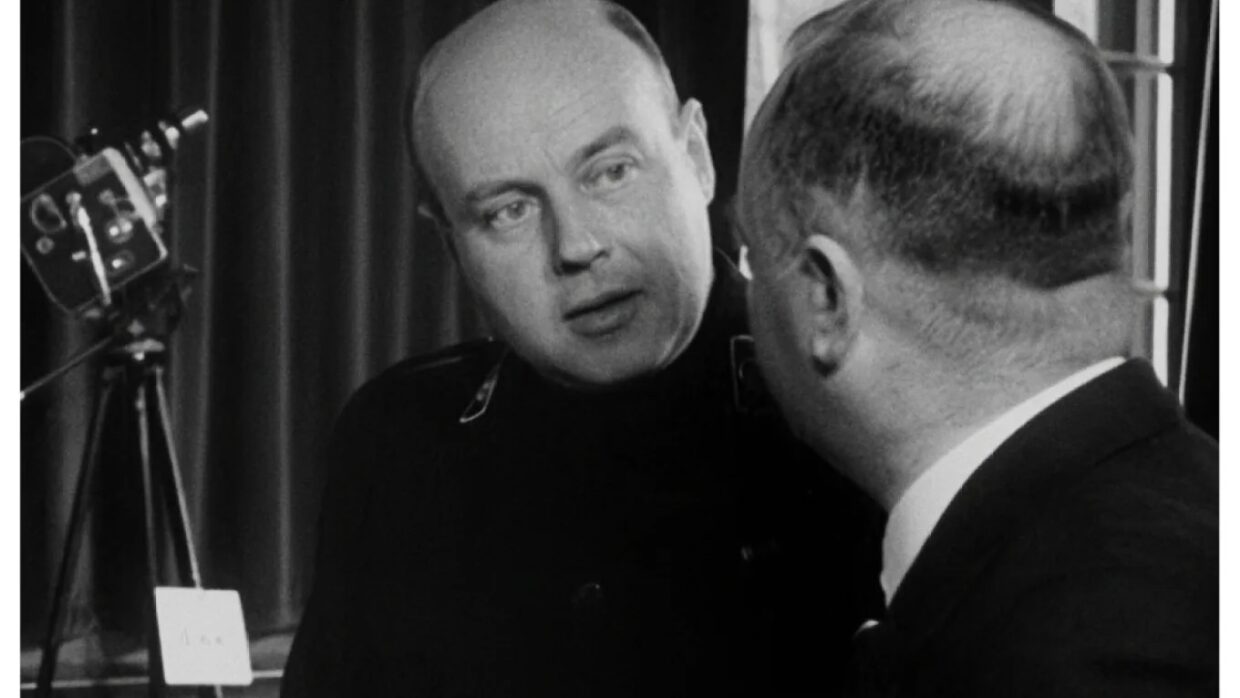 Back to selection
Back to selection
IDFA 2024: Winners and Winners
 The Propadandist
The Propadandist This year’s IDFA (November 14-24) starred Polish filmmaker Maciej J. Drygas’s Trains, a cinematic ride through 20th century industrial revolution-propelled European history via a trove of archival found footage; it unanimously nabbed Best Film in the International Competition. And while the doc is undoubtedly a tour de force of editing and sound design (unsurprisingly, it also took Best Editing in the International Competition), not to mention hypnotically reminiscent of the work of Bill Morrison, it was actually the other B&W archival-heavy film in that section that I just couldn’t shake.
Dutch director Luuk Bouwman’s The Propagandist (which did receive the IDFA Award for Best Dutch Film) mostly combines previously unpublished interviews, home movies and propaganda films to paint a detailed portrait of another Dutch filmmaker, Jan Teunissen, who died in his late seventies back in 1975. Though he was once the most powerful man in the country’s film industry, an illustrious career he had not. Indeed, Teunissen’s heyday occurred during World War II, when the crafty aristocrat managed to charm and cajole his way into becoming the unlikely head of the Department of Film of the Dutch Nazi Party and SS. Not the sort of appointment one would necessarily expect to be bestowed on a filmmaker whose sympathetic pre-war documentary about Jewish Amsterdam had been a box office hit. Then again, the calculating opportunist surely knew before shooting a single frame of Sabbath that the Jewish demographic could turn such material into a moneymaking positive-press success. (Of course, through the magic of cinema, portions of that doc later would be repurposed for Nazi propaganda.)
While Teunissen might have been nicknamed the “Dutch Leni Riefenstahl” he was really more D-list Riefenstahl, an insufferable narcissist equally obsessed with both filmmaking and preserving his social status and inherited wealth above all. (After the Dutch military surrendered to the Germans it took Teunissen merely an hour to apply for a film job in the “new order.”) Which meant sucking up to folks like Goebbels and Göring, names he’d drop in post-war interviews in an attempt to boost his own dubious historical significance. Not that he felt any particular affinity to those war criminals or approved of the regime’s unspeakable tactics. “A very unfortunate episode,” the blowhard once opined about the Holocaust. “I don’t think it was done very elegantly. But it was a German problem.” The shamelessness of evil more maddening than any banality.
Though Best Film in the Envision Competition went to Cuban director Miguel Coyula’s Chronicles of the Absurd, it was an accolade certain not to be celebrated in the director’s home country. Indeed, the island nation requires every artist to be recognized by a state-sponsored art institution — not really an option for free-thinking artists like Coyula and his actor partner and collaborator Lynn Cruz. And since conformist artist is an oxymoron, this naturally puts all Cuban creatives — or rather “illegal” artists as according to the government independent artists don’t exist — in a bit of a bind. Hence the “absurd” of the title. While the “chronicles” unfold in ten chapters comprised of mostly secret audio recordings, along with visuals of transcripts from the couple’s encounters with the dictatorial bureaucracy, that give the finger to the regime in every frame, which are further layered with everything from headshots to film posters to paintings, to punk rock interludes. Ultimately resulting in a cinematic rage against the machine.
Though Chronicles of the Absurd is definitely “daring” in form (a requirement of the Envision Competition), it was actually another Spanish-language selection in that particular program that stayed with me long after the credit roll. Miguel Calderón’s Loss Adjustment “explores the intersection between human tragedy and contemporary art” through the intersection of two men: Pedro, a claims adjuster for an insurance company in Mexico, and the Mexican filmmaker and artist himself. The improbable pair became friends years ago after Pedro sought refuge in the contemporary art scene; eventually transforming into an avid collector as an escape from the violent and corrupt world his job forced him to navigate. But now Pedro finds himself impulsively accepting a role in a Sarah Kane play about violence and femicide, having been roped in to the theater production by the unusually flirtatious lead actress, who Pedro has a crush on. And who also happens to be married to the theater director, both of whom are keenly aware of the claims adjuster’s financial interest in the arts. Which results in yet another existential crisis for Pedro, and perhaps even for Mexico itself.
